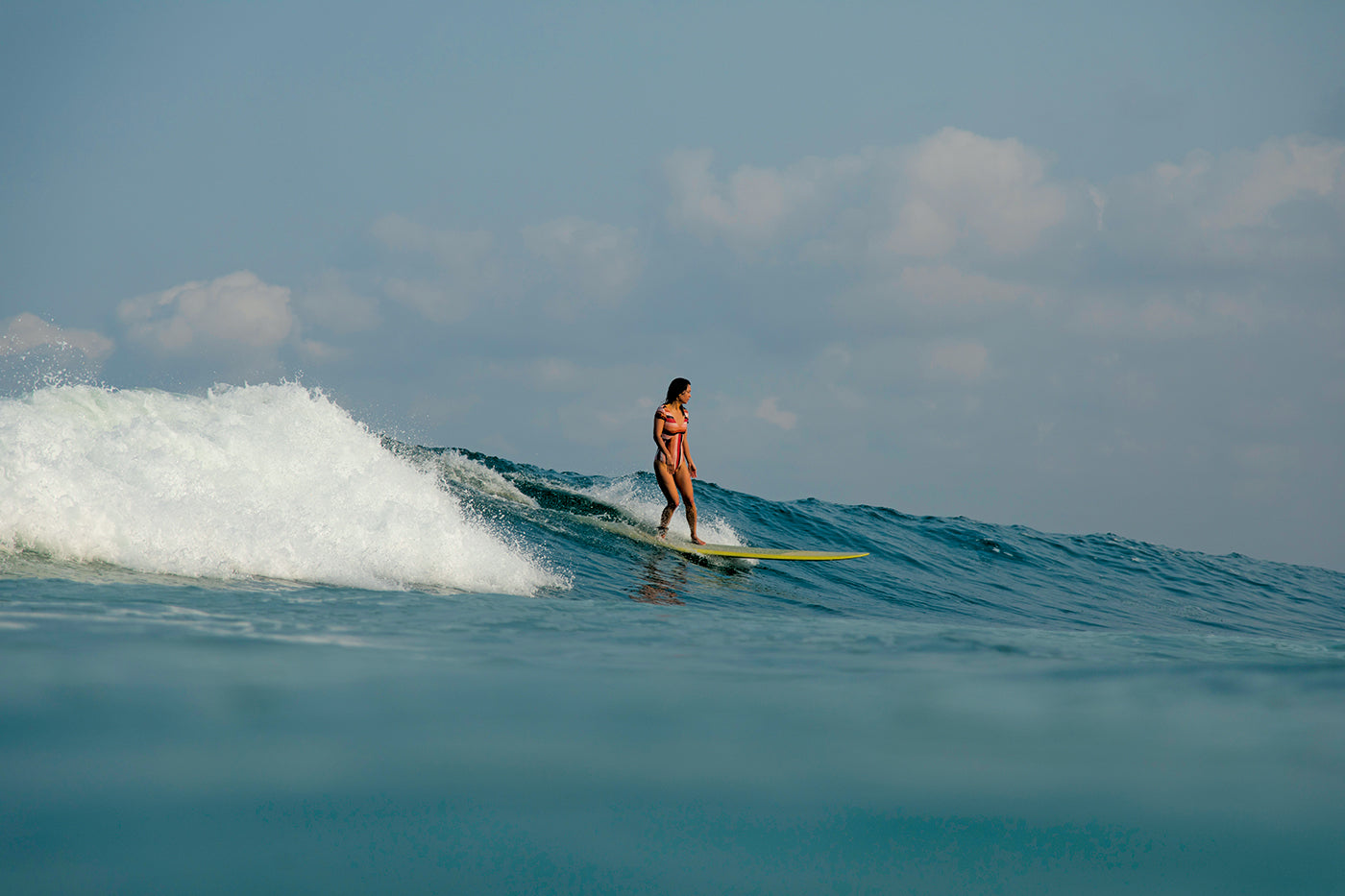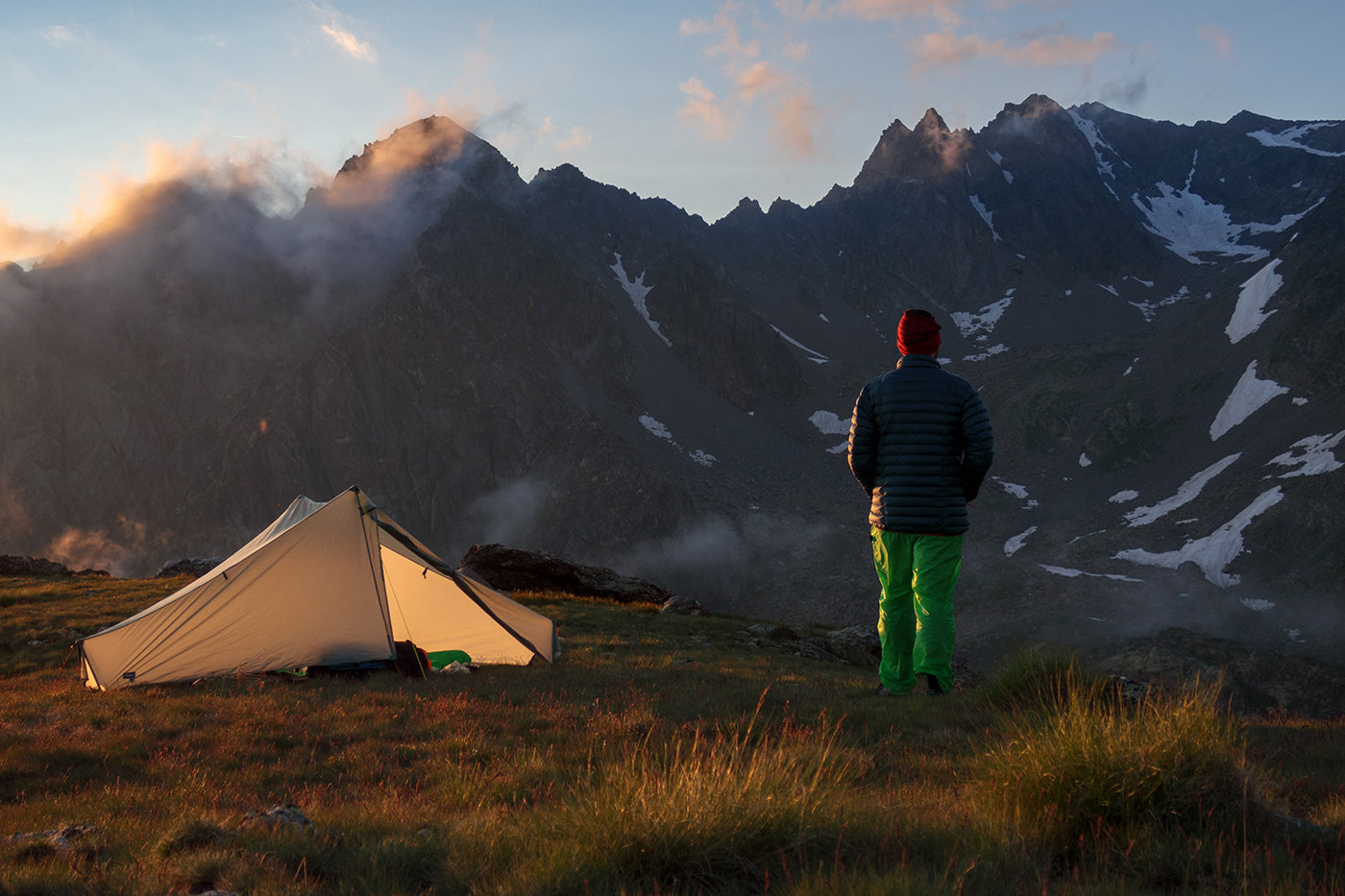
Rhea Cortado is Writing a New Surf History
The journalist twisting through water and ripping out outdated antidotes of the beginnings of female surf culture
“We are rewriting our stories and reclaiming our voices, and that’s revealing a richer, more colorful and nuanced spectrum of female surfers and their experiences,” says Rhea Cortado. Working as a writer, reporter, and creator of strategic brand content that pushed this reclamation forward, she opens up about an exciting new history in She Surf.
Over the last ten years, she has helped buoy the stories of women, and especially women of color, into surf culture to make the line-up more inclusive. As an Asian American woman, Cortado identifies first-hand with feeling excluded from the nexus of surf culture. She was born and raised in Watsonville, the strawberry capital in Santa Cruz County in California. Her parents immigrated from the Philippines in 1980 to Watsonville since relatives lived nearby.
“Even though I grew up a 30-minute drive away from a vibrant surf community and always wanted to learn, surfing felt elitist, like a club in which you had to know someone to be invited to.” Even as she started to gain more confidence in the ocean, she says that didn’t translate to a feeling of belonging right away. At the time, mainstream surf media’s archetypes didn’t mirror her own “personal, intersectional experience.” Surfing captured Cortado’s imagination on the island of Kauai amidst the global financial crisis of 2008 when she was 26-years-old.

Rhea Cortado is sharing stories and building community around the intersectional realities of surf culture. Surfing forces her to take a back seat to the embodied moments of sliding ecstasy. (Photo: Luki O'Keefe, She Surf)
Driven and ambitious, Cortado made a name for herself in the booming apparel trade, covering news and trends for fashion media and freelancing in Los Angeles. She had been drawn to fashion as an outlet “of self-expression and communication through style” and was fascinated by clothing’s ability to convey “stories of who you were, where you came from or wanted to be.” But the bottom fell out of the industry as the country went into economic recession, causing businesses to close their doors and freelancers to be even freer. Cortado was seeking a rebirth when her cousin offered to push her into some gentle wavelets while on vacation in Hanalei Bay. “As a writer and learner, I had so many questions. How do I stand? What foot goes forward? When do I stand up? Why aren’t I wearing a leash? My cousin said, ‘Don’t think about it, just feel it.’” This became something of a mantra to keep her bright mind in check.
While she still had questions, she let her body lead and her mind follow, skimming over coral reefs and basking in the Hawaiian sunshine. Surfing came naturally; she found her flow state—a physical expression parallel to the internal creative writing flow. “Later, I was sitting in a beach chair with some retired folks from the mainland—all of whom had worked their whole lives in different professional careers and were spending their twilight years in Kauai. I thought this is how I want to be living now working less, being outside, and exploring more.”
Surfing laid the tracks for that path forward. Cortado made the career move to the surf industry and now crafts a livelihood that allows for flexibility when it comes to the alignment of surf conditions. “Surf culture was ripe with a whole new set of status symbols, values, vocabulary, body language, dynasties, feuds, and niche communities to uncover that was super fascinating,” she says. “It felt like I was a cultural anthropologist learning about a whole new tribe of people.”
With an upright, elongated torso and an open palm leading, Cortado is an elegant surfer. She develops relationships with local shapers to craft boards that suit her style and the waves she likes to ride: slowly peeling long, right- hand pointbreaks along the coast of Baja and California. She spends most of her water time on a 9’ single-fin longboard shaped by Ashley Lloyd or a 6'8" 2+1 egg by Christine Brailsford—conditions and mood pending.

“Don’t think about it, just feel it,” became one of Cortado’s mantra’s after learning to surf. (Photo: Allan Nadel, She Surf)
Her knowledge and experience in the water and with the industry have grown, so has her clarity about the dominant narratives in the culture. “The most readily accessible histories and documentation of surfing and surfers are largely written by white men from a specific worldview and through a certain lens of performance and achievement,” she notes. “Those are all honest histories, but it also omits many people from the narrative. I have an instinct that there are many more intersectional stories, especially about women, that were never documented because they were perceived as unworthy, unimportant, or never crossed paths with the gatekeepers.”
Today, Cortado helps to unearth those stories and share them via the brands, blogs, and other media outlets where she writes and edits. From profiles about Native Hawaiian and multicultural creatives in Hawai‘i to how female surfers are living sustainably for SurfGirl magazine, her work strives to shed light on different angles, subtleties, and emotions of female surfers beyond the superficial. Tapping into the community on social media, she shares her digital stories that uplift the authentic stories of women that are often passed over by the mainstream media.
“Women are inherent nurturers that tend to care about the health and well-being of the community as a whole and respect for the ocean above the individual ego. Because of that approach, women have been my best teachers in surfing and offered the most sincere invitations to participate—something I aspire to extend in my work and life. Within their company, I feel closer to belonging.” By creating an extraordinary legacy through writing and water, Cortado is educating a new community that for generations was only told history through the guise of white men. Turning the tide and narrative of the sport, she is enlightening a new generation to surfings potential while chronicling a past through objectivity.
This story was originally featured in She Surf and written by Lauren L. Hill. Find out more about the book.



